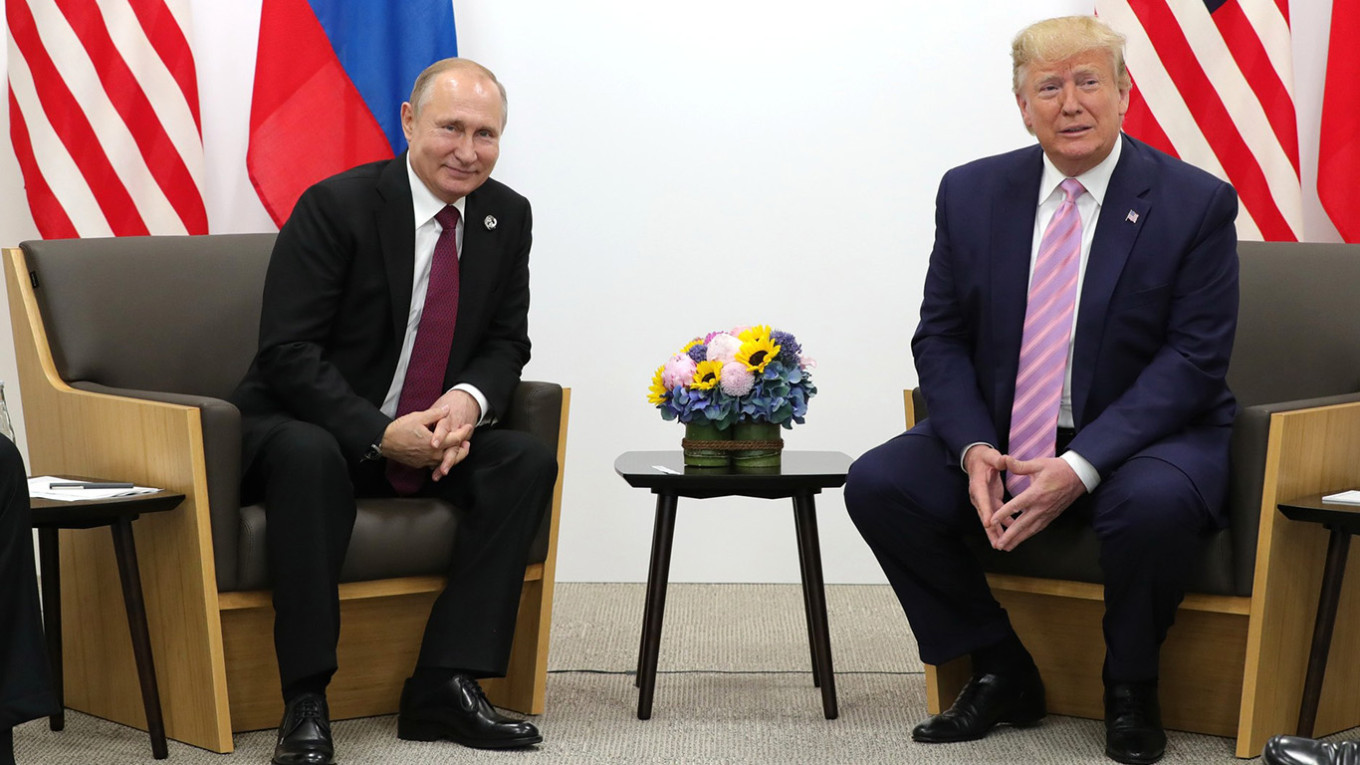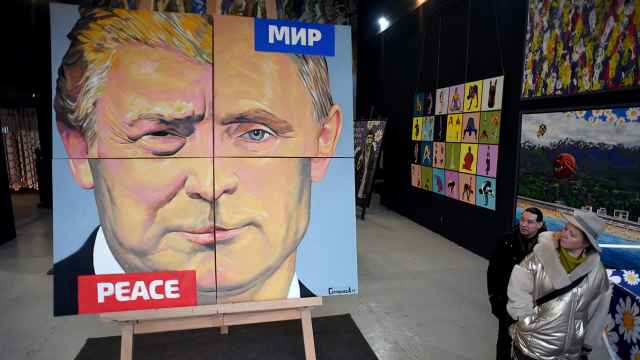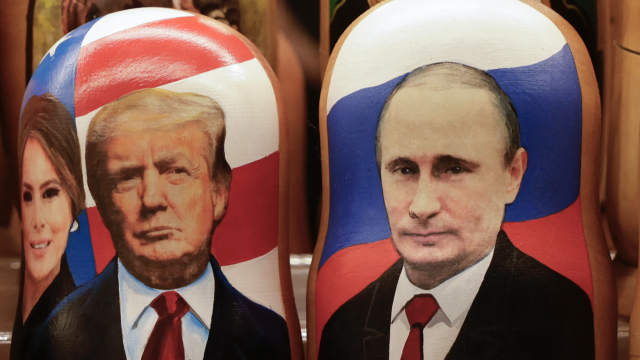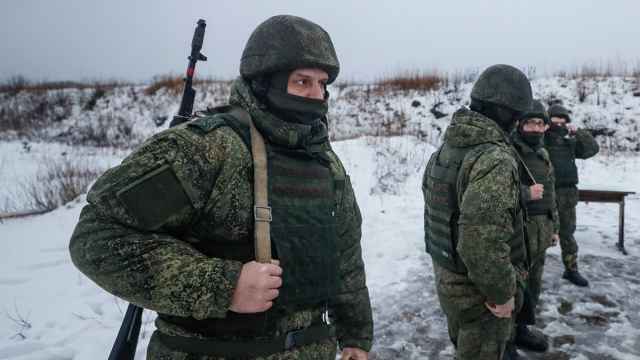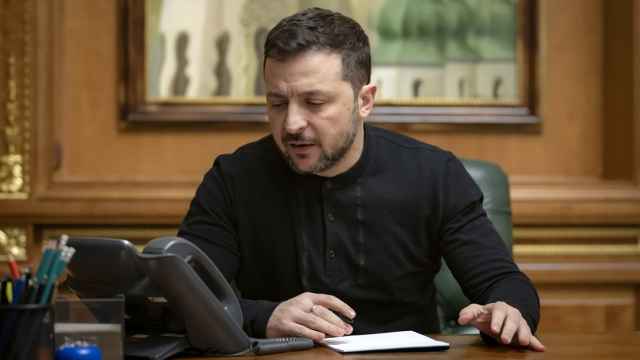Russian President Vladimir Putin agreed to “work together” with his U.S. counterpart Donald Trump and expressed readiness to negotiate peace in Ukraine in a phone call on Wednesday, the Kremlin confirmed.
The call, the two leaders’ first known discussion since Trump’s Jan. 20 inauguration, signals an extraordinary thaw in relations that could leave Kyiv out in the cold.
Trump “spoke in favor of a swift cessation of hostilities and a peaceful resolution of the problem” during the 1.5-hour call, Kremlin spokesman Dmitry Peskov said, without providing further details.
Putin "agreed with Trump that a long-term settlement could be reached through peaceful negotiations," the Kremlin said in its readout of the call, which it said lasted almost one-and-a-half hours.
However, Putin “mentioned the need to address the root causes of the conflict,” the Kremlin said, without elaborating.
The Russian leader also invited Trump to visit Moscow, according to the readout.
Trump said he and Putin agreed to "immediately" start negotiations to end the Ukraine war during their "lengthy and highly productive" call.
"We agreed to work together, very closely, including visiting each other’s Nations," said Trump.
Hours later, Trump told reporters he would meet Putin in Saudi Arabia at an unspecified date.
He predicted a ceasefire in the "not too distant future," adding that Ukraine needs fresh elections "at some point." He also said it would not be "practical" to grant Ukraine membership to NATO, a key sticking point for Kyiv in any talks to end hostilities.
Zelensky after Putin
Trump had promised to end the Ukraine war before taking office and has been pushing for a peace settlement while remaining coy until now about any possible contact with Putin.
But in a sign that Ukraine could see its fate decided by Washington and Moscow, Trump said that "we will begin by calling President Zelensky, of Ukraine, to inform him of the conversation."
Zelensky has been trying to keep on the right side of Trump and maintain U.S. support while pushing his own nation's demands for peace with Russia.
Trump said his conversation with Zelensky "went very well" and that "he, like President Putin, wants to make PEACE."
He added that Zelensky would meet U.S. Vice President JD Vance and Secretary of State Marco Rubio in Munich on Friday.
"We long talked about opportunities to achieve peace, discussed our readiness to work together at the team level," Zelensky said on social media.
'Stop the deaths'
The Trump-Putin call came after a prisoner swap this week that saw Moscow free U.S. teacher Marc Fogel while Washington released Russian cryptocurrency kingpin Alexander Vinnik.
Trump heaped praise on the Russian president in his Truth Social post, saying that Putin "even used my very strong Campaign motto of, 'COMMON SENSE'."
He said they "both agreed, we want to stop the millions of deaths taking place in the War with Russia/Ukraine" — with Trump using an unconfirmed figure for the toll in the war.
Trump said he had asked U.S. Secretary of State Marco Rubio, CIA Director John Ratcliffe, National Security Advisor Michael Waltz and his Middle East envoy Steve Witkoff "to lead the negotiations which, I feel strongly, will be successful."
The call reflects an extraordinary shift in U.S. foreign policy, which under former President Joe Biden sought to alienate Moscow for its full-scale invasion of Ukraine and support Kyiv's defense for "as long as it takes."
Earlier Wednesday, Trump’s Secretary of Defense Pete Hegseth told allies that Ukraine’s goals of NATO membership and restoring its pre-2014 borders in negotiations to end the war were “unrealistic.”
Meanwhile, Moscow continues to stand by its hardline demands for peacefully ending its war on Ukraine, including the withdrawal of Kyiv's troops from four eastern regions that Moscow claims as its own despite not fully occupying any of them.
"Make no mistake — Putin is fully prepared for these talks to fail. From the Kremlin’s perspective, there is nothing the West can do that would reverse Russia’s territorial gains and prevent Ukraine's collapse in the long run," Tatiana Stanovaya, founder and head of the political analysis project R.Politik and a senior fellow at the Carnegie Russia Eurasia Center, wrote on X.
"Putin will continue to flatter and appease Trump, offering concessions that Trump will portray as a HUGE SUCCESS and a WONDERFUL DEAL. But these concessions — such as a ceasefire — will not deter Russia from its ultimate goal: securing a 'friendly' Ukraine on its terms," she wrote.
AFP contributed reporting.
A Message from The Moscow Times:
Dear readers,
We are facing unprecedented challenges. Russia's Prosecutor General's Office has designated The Moscow Times as an "undesirable" organization, criminalizing our work and putting our staff at risk of prosecution. This follows our earlier unjust labeling as a "foreign agent."
These actions are direct attempts to silence independent journalism in Russia. The authorities claim our work "discredits the decisions of the Russian leadership." We see things differently: we strive to provide accurate, unbiased reporting on Russia.
We, the journalists of The Moscow Times, refuse to be silenced. But to continue our work, we need your help.
Your support, no matter how small, makes a world of difference. If you can, please support us monthly starting from just $2. It's quick to set up, and every contribution makes a significant impact.
By supporting The Moscow Times, you're defending open, independent journalism in the face of repression. Thank you for standing with us.
Remind me later.


